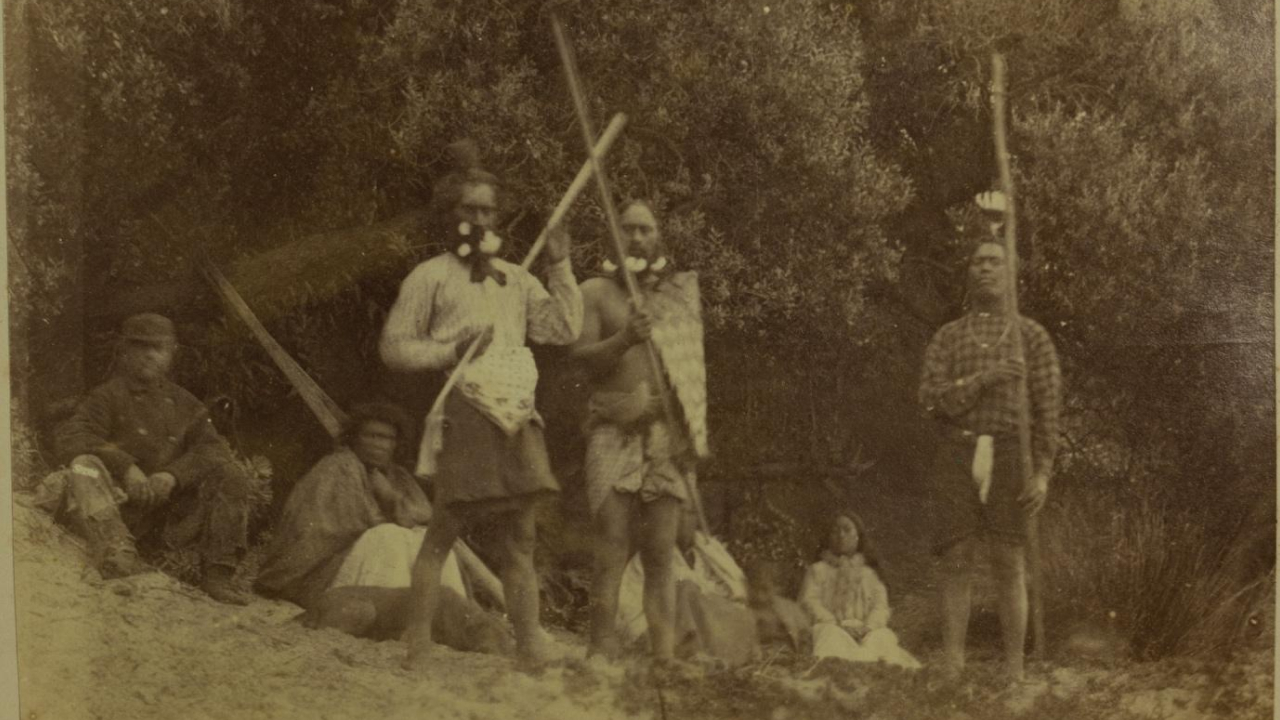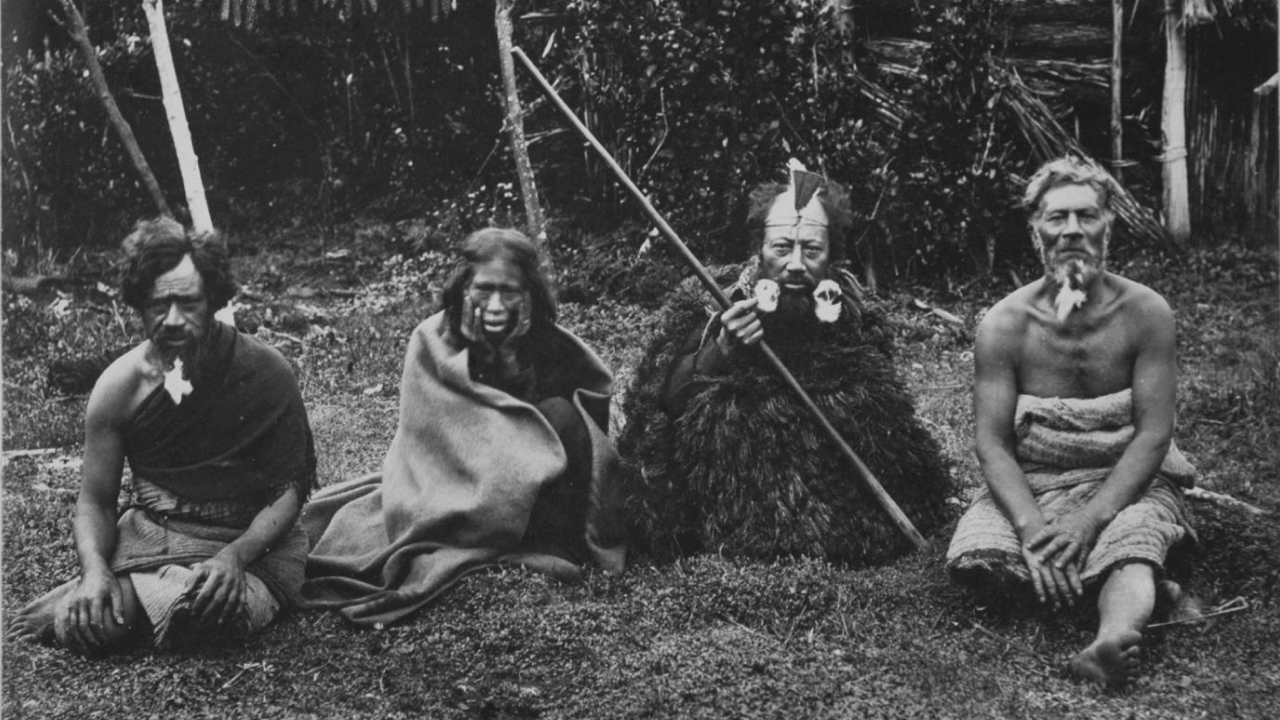Missing Voices

Tchakat Moriori, Ōwenga, Rēkohu (Chatham Islands), ca1873
Credit: S D Barker photograph, Barker Collection, Canterbury Museum
The many ‘voices’ of Moriori that were lost through colonisation and the 1835 invasion of Rēkohu by Ngāti Mutunga and Ngāti Tama, form one of the most painful and powerful chapters in Aotearoa’s history. What followed was not just the loss of land and liberty but a near erasure of an entire culture. Through violence, slavery, and deliberate cultural suppression, generations of Moriori were denied the right to speak, to remember, and to be heard.
The Impact of Invasion and Colonisation
Before European contact, Moriori lived peacefully on Rēkohu under Nunuku’s Law, which upheld non-violence and mutual respect. In 1835, this peace was shattered when Ngāti Mutunga and Ngāti Tama, armed with muskets and supported by European ships, invaded. Hundreds were killed, and the survivors were enslaved. Moriori were forbidden from speaking our language, practicing our culture, or even marrying among themselves. Resistance was met with brutal punishment.
The suppression that followed caused deep and lasting losses. The deaths of elders erased generations of oral history and spiritual tradition. Cultural practices such as karakii, rakau momori, and other forms of artistic and sacred expression were either suppressed or lost entirely. However, largely thanks to Hirawanu Tapu and Alexander Shand, a lot of traditional knowledge of Moriori was preserved in written form. Ta rē Moriori, the language of Moriori, was pushed to the brink of extinction, especially after the death of Hirawanu Tapu in 1900. Moriori leadership was dismantled, and even after slavery was legally abolished in 1862, the people remained politically marginalised and without voice.
Silencing Through Myth
Colonial New Zealand didn’t just erase Moriori through violence, it effectively wrote them out of history. A deeply harmful myth arose that Moriori were a primitive, pre-Māori people, inferior and extinct. This lie, supported by government backed education materials like The School Journal, was taught to generations of schoolchildren well into the 20th century. It told a false story that justified colonisation and encouraged shame among Moriori descendants. Some children were told not to speak of their Moriori identity. Others carried the hurt of mockery and misunderstanding into adulthood. For many, it was easier to hide than to speak. The silence stretched across generations. It has caused inter-generational trauma that many descendants may not even be aware of.
The Return of Moriori Voice: Challenges and Revival
Today, under the guiding principle of Hokopanopano – recognition, revitalisation, and revival -Moriori voices are returning. Descendants are stepping forward, reclaiming what was hidden or taken. We are revitalising ta rē Moriori, restoring traditional arts, and correcting the record in schools, books, and the national conscience. The voices that were once silenced are being heard again.
In 2024, Moriori received international recognition when their covenant of peace was honoured by the World Futures Council in Geneva, with the award of an international peace award for Nunuku’s Covenant of Peace. This award acknowledged the unique and principled stand Moriori have upheld for centuries, rooted in Nunuku’s Law of consciously choosing to respond in a peaceful manner to the violent and unlawful invasion of their Island home.
Yet despite this resurgence, Moriori continue to face significant barriers to fully reclaiming their voice. Access to important wāhi t’chāp, such as Nunuku’s Cave (a sacred site essential to our cultural care) and the minimising of our voice as ‘waina pono’ continues. Moriori’s ability to protect and assert rights to Moriori miheke under current legislation is often undermined by competing claims and institutional processes that fail to recognise Moriori provenance and authority.
To truly ignite and sustain the voices that were once suppressed, Moriori must be empowered to express themselves authentically and without constraint. Only then will Moriori be acknowledged not just as survivors but as the first settlers of Rēkohu, the waina pono of these islands.
Me rongo

Tchakat Moriori sitting in front of hut, Rēkohu (Chatham Islands) 1877
Credit: Alfred Martin photograph, Bassett Collection, Canterbury Museum
